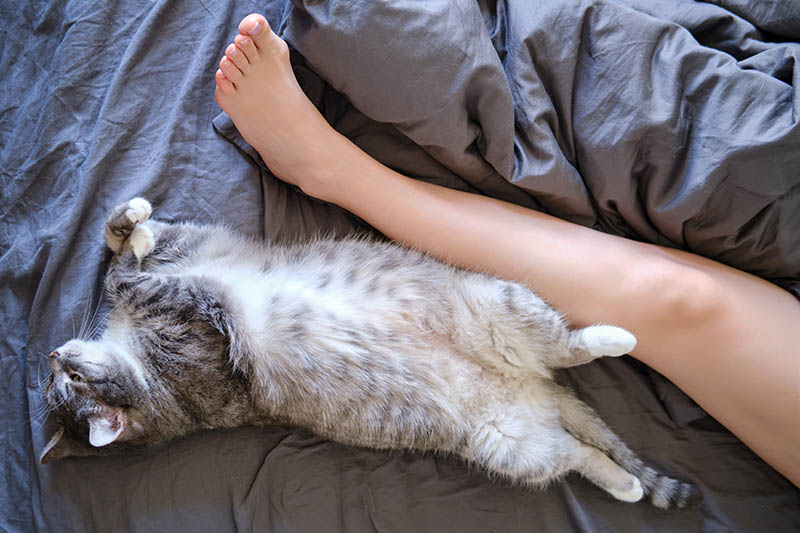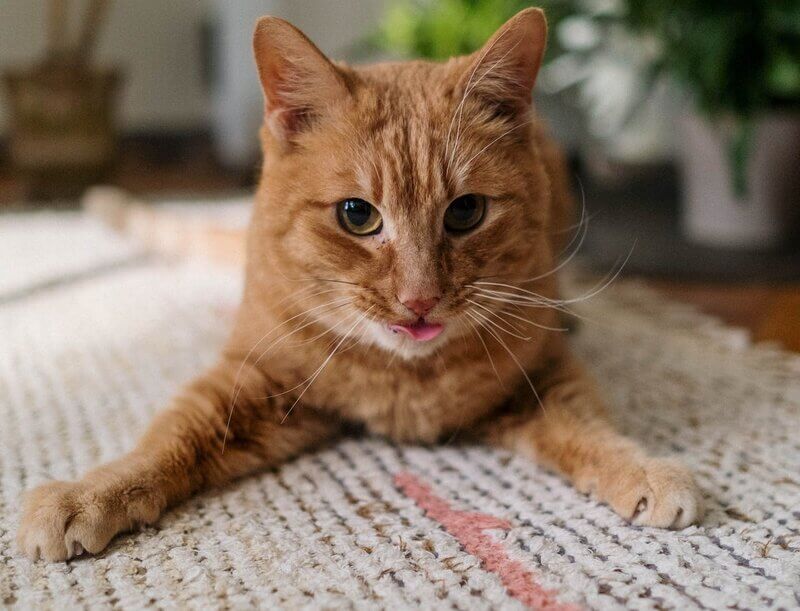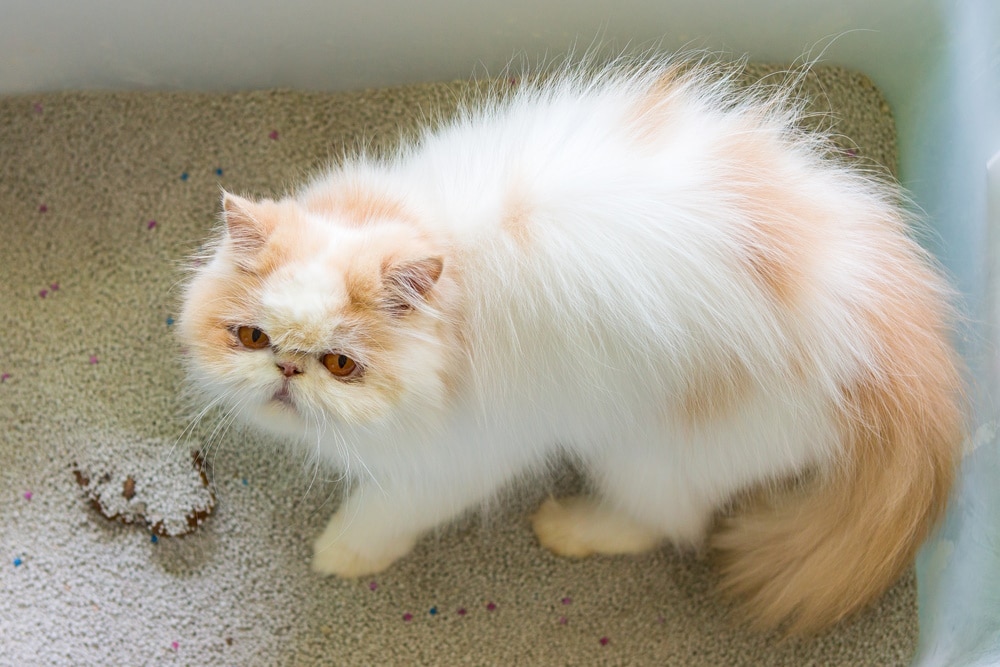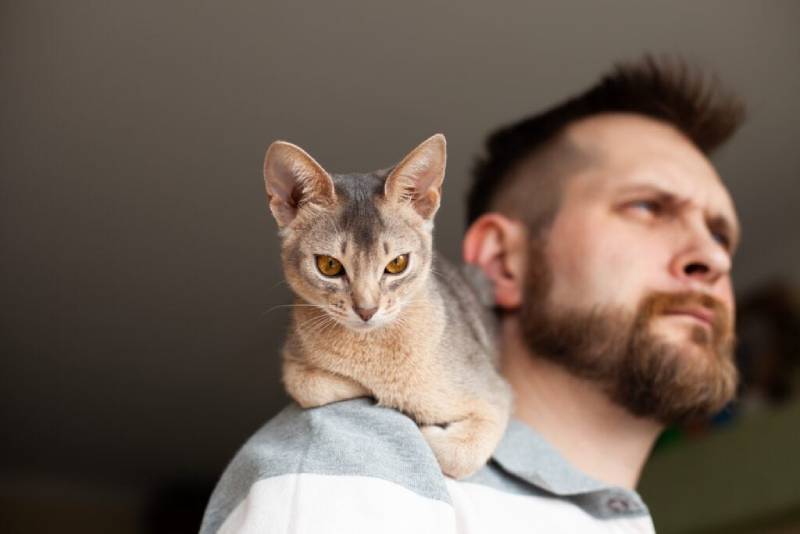If you’re a cat owner, you know how much cats love to sleep. Most cats sleep up to 16 hours a day, and when choosing a place to sleep, most indoor cats love their particular sleeping spots.
According to animal behavior experts, cats enjoy sleeping in places with easy access to escape in the event of danger, as well as warm and cozy areas. Cats are vulnerable when they sleep, and even though indoor cats do not live in the wild, their ancestry still dictates their sleeping locations. Cats also love to sleep in small, enclosed places because it makes them feel secure. Join us in learning more about where cats like to sleep and the five typical places they choose.
The 5 Typical Places Cats Like to Sleep
1. Your Bed or Theirs
It’s estimated that roughly 34% of cats choose to sleep in their owner’s bed or a bed of their own 1. They love warm and toasty places, and a cat may choose to sleep under the covers with you. Your body heat provides warmth, and your cat will likely enjoy the coziness of your bed and the covers. Some cats may sleep on top of the covers while pressing their body against yours for added warmth.
Some cats enjoy having their own cat bed, and providing an enclosed one may be ideal for your particular feline. Soft fleece blankets may also do the trick if you don’t have a cat bed. You can place the blankets in spots where you’ve noticed your cat taking a snooze. Odds are, your cat will cozy up in the blankets. Note that if you have multiple cats, each cat should have their own bed.
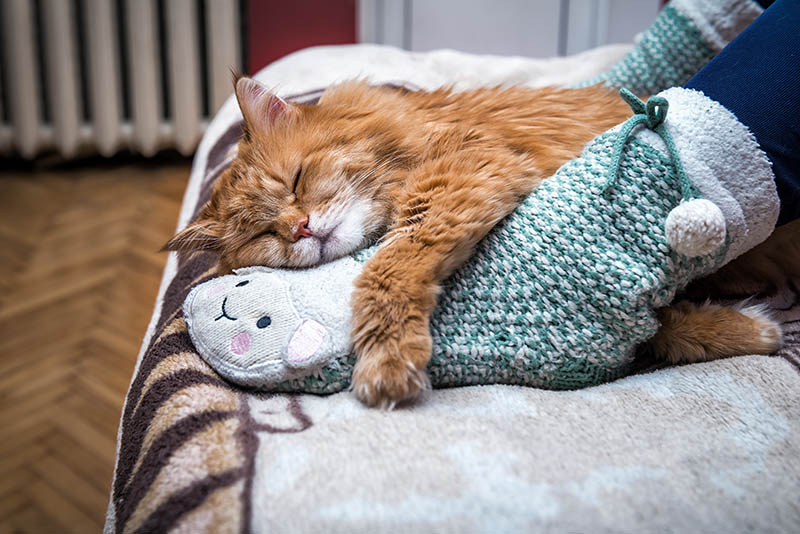
2. Somewhere Up High
Cats love to hang out in high places so they can observe everything from a safe distance. In the wild, cats prefer high areas to stay safe from predators, and domesticated cats inherit this behavior from their ancestors. For example, if you have a piece of furniture that your cat can access, such as an armoire or some type of cabinet, you may find your cat up top taking a snooze, especially if the furniture is located in a warm, sunny spot in the home.
Installing cat shelves is an excellent idea to give your cat more choices of where to hang out and sleep. You can also provide your cat with a cat tree. Most cats love to sleep in their cat tree, and if you’re a cat owner, it’s recommended to provide one for your feline.
3. Your Lap
If your cat has bonded with you, don’t be surprised if they prefer to nap on your lap. The warmth and coziness of your lap are comforting, and some cats even fancy the sounds your body makes. Your cat may feel safe and secure on your lap and may even sleep on your chest. If you don’t mind letting your cat sleep on you, by all means, let them take a snooze.
Letting your cat sleep on you is a unique bonding experience that some cat owners will never have if they have a finicky feline. Cats will change up their chosen sleeping spots from time to time, so cherish the moment while you have it.
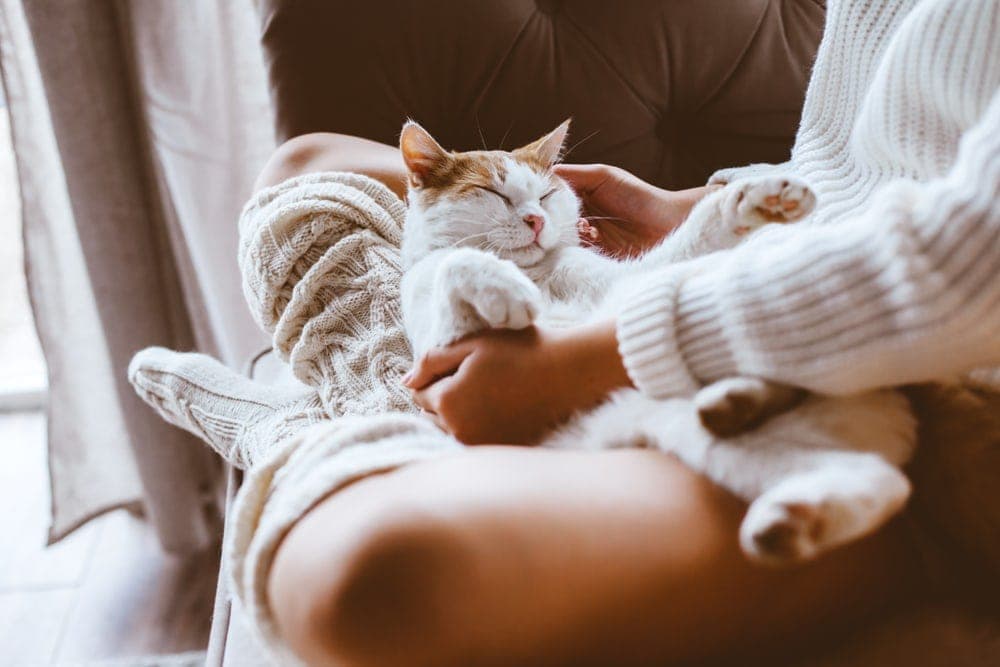
4. Enclosed Spaces
Some cats prefer the safety of sleeping in enclosed spaces, such as a cardboard box or even a bathroom sink. Paper bags are even a consideration. Any den-like structure will do. If you see your cat sleeping in an enclosed space, ensure they have an exit, as your cat will not choose an object if they don’t feel safe, but it’s still wise to monitor the situation.
5. With Other Pets in the Home
If you have other pets in the home, such as dogs or other cats, your cat may choose to snuggle up with them during naptime. Some cats may prefer to be a part of the social group in the home, and the warmth of your dog or other cats may be an ideal spot. However, most cats are independent, and some are downright aloof, so this scenario will depend on your cat’s personality.
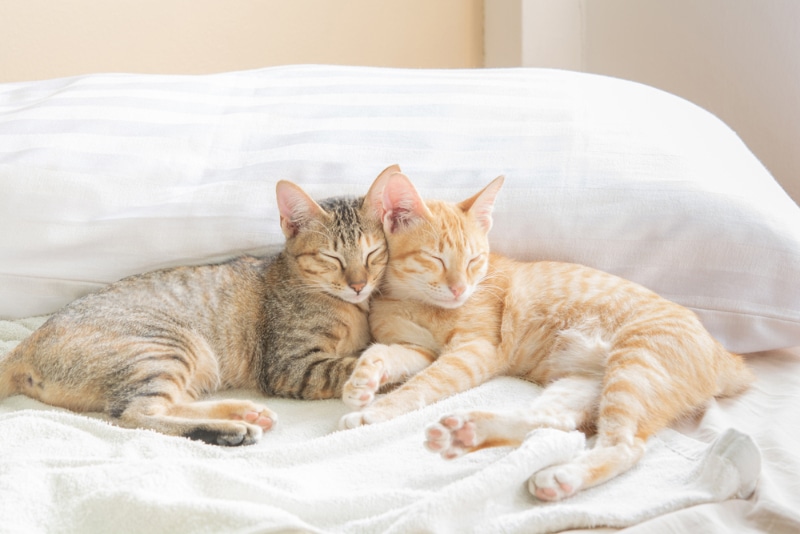

Conclusion
All cats have their personalities and preferences, especially when it comes to choosing a sleeping spot. Most cats love warm, cozy areas, especially if the area is in a sunny spot in the home or up high. Your cat may choose to sleep in your bed, but if you can’t get good sleep with your cat, you may prefer to provide your cat with their own bed or soft, fleece blankets.
If your cat chooses to take naps on your lap, enjoy the bonding experience, as not all cat owners will receive such affection from their kitties.
Featured Image Credit by: Zhuravlev Andrey, Shutterstock

